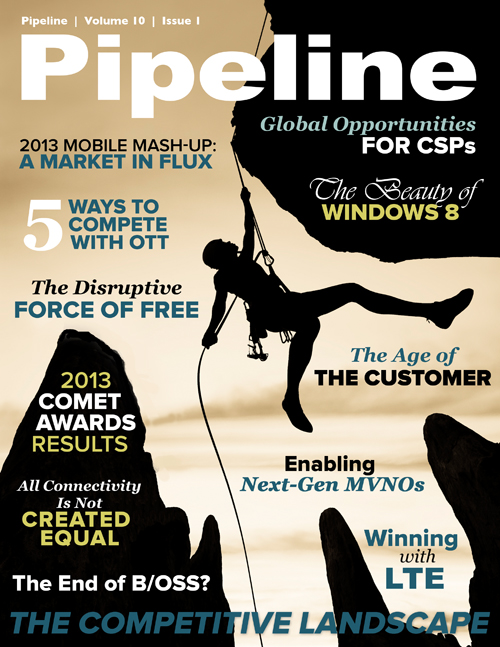The Global Opportunity for Service Providers
Global money
Serving the needs of commerce and using mobile communications as a platform for global banking is opening up entirely new markets for communications technology providers. Recently, eServGlobal and Oltio, two tech providers in the field of financial services, announced that they‚Äôve joined MasterCard‚Äôs Mobile Money Partnership Program, which strives to serve the ‚Äúunbanked‚ÄĚ in developing economies.
‚ÄúMobile has the unique potential to provide financial inclusion in emerging markets like Latin America, the Middle East, Asia, and Africa,‚ÄĚ said Mung Ki Woo, group executive of mobile for MasterCard Worldwide, in a corporate press release. ‚ÄúIn fact, 16 percent of adults in sub-Saharan Africa report having used a mobile phone in the past 12 months to pay bills or send or receive money. The addition of eServGlobal and Oltio into the Mobile Money Partnership Program increases our collective reach and influence in emerging markets, where better access to electronic payments is vital.‚ÄĚ
Roaming
Verizon wants to leverage its LTE market dominance in the US by forming partnerships overseas to offer customers a true LTE roaming experience. Forging exclusive agreements could also be an effective tool for shutting out competitors: Verizon’s brass spent time at Mobile World Congress in Barcelona earlier this year meeting with providers to discuss deals, according to sources familiar with the negotiations. The CSP says it will have LTE roaming agreements in place in both Canada and Europe by next year.
For some CSPs a simple adjustment of billing models can be the first step toward getting customers more comfortable with using their mobile devices when traveling abroad. T-Mobile, for example, just announced the International Flat-Rate Plan for data roaming to alleviate bill shock for its business customers.
Business travel, which slowed significantly as a result of both the 9/11 terrorist attacks in 2001 and the worldwide economic meltdown of 2008-’09, has come back strong: the Global Business Travel Association (GBTA) estimates that US business travelers will spend more than $250 billion this year, a 4.2 percent increase over 2012. Naturally, many companies are looking to cut the costs associated with international roaming, which is why CSPs like T-Mobile are stepping up with new services to meet the cross-border needs of global business.
‚ÄúThe biggest pain point around international business travel, besides the travel itself, is the unpredictability of the wireless bill following the trip, from international data-roaming fees to costly overage charges,‚ÄĚ said Drew Kelton, T-Mobile‚Äôs executive vice president of B2B, in a press release. ‚ÄúOur new international data offerings help remove the risk of ‚Äėbill shock,‚Äô enabling business customers to simply focus on staying productive and connected from nearly anywhere.‚ÄĚ
Technology licensing
As revenue from voice and wireline services continues to erode, some CSPs are exploring technology licensing as a possible entryway to a global market, including AT&T, which is pitching its hugely successful Digital Life home-monitoring platform to European carriers. Glenn Lurie, head of AT&T’s Emerging Devices unit, said there has been strong interest so far, while CEO Randall Stephenson is lobbying foreign governments to take a hands-off approach in regard to regulating new services being created as a result of 4G connectivity.
In addition, CSPs have begun to extend their unique network capabilities to developers through open APIs (application programming interfaces). Last year the GSMA’s OneAPI initiative brought together Belfast-based vendor Aepona with interoperability specialist Transaction Network Services and Canadian mobile network operators (MNOs) Bell Mobility, Rogers and Telus to create a single API from which developers could access network and service data such as location, SMS and billing.
The OneAPI initiative scratches the surface of something much bigger: how can CSPs monetize their network capabilities for application development so they can benefit from OTT applications instead of seeing them solely as a bandwidth-hungry competitive threat? With the GSMA representing roughly 800 mobile operators in 220 countries, its flagship commercial deployment in Canada seems to be just the tip of this particular iceberg.



















